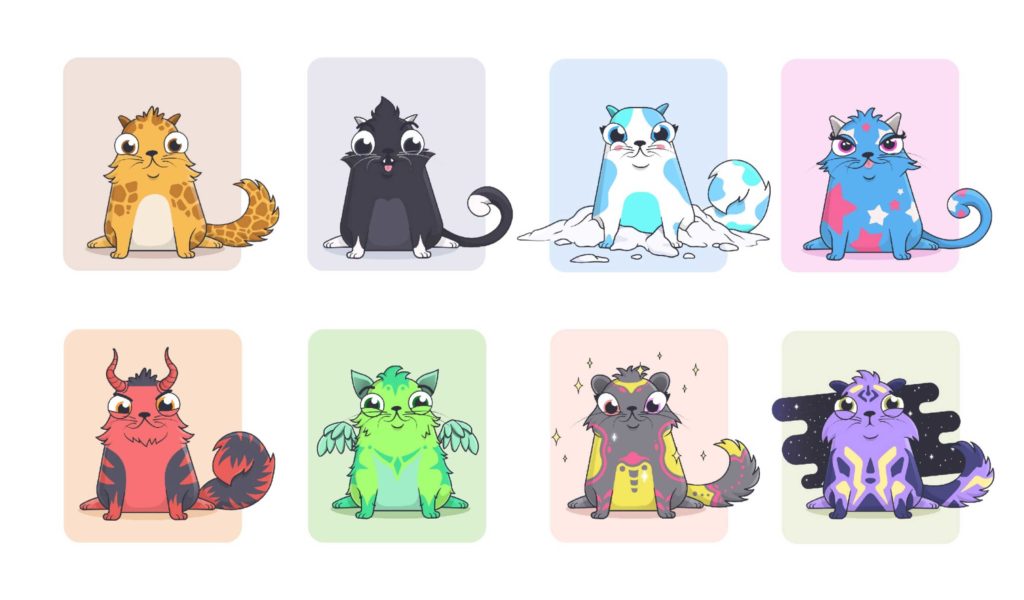NFTs have been around for quite a few years already, so I was surprised to see such a spike in interest in early 2021. My first reaction when I heard about CryptoKitties in 2017 was one of bafflement. I concluded that it made no sense for me, in part because I never was a collector.
I’m ready to accept that for some people, collectors or crypto-nuts, CryptoKitties could make sense, even if in a bizarre way. I still find it striking that after reaching the lofty goal of quasi-universal access to human knowledge with the Internet, we would then proceed to toss it all away and reintroduce limits and scarcity in the equation.
Maybe I shouldn’t be surprised: the fact that torrents and piracy exist is not a sufficient reason for most of us to go and grab content that we can access by paying the copyright holder. It feels fair and intuitive to contribute to the financial success of a movie that was just released and that we want to access with the convenience of a click. Laws on Public Domain and the Creative Commons can smooth out the process a bit and help the process of circulating knowledge (even if Disney and others try to bend the rules).
I’m mostly disappointed in seeing some of the revolutionary qualities of the early web to be erased from the picture. We thought we were a little closer to the Utopia of a post-scarcity society, realizing that sending a file a million times all around the world had a negligible cost. But eventually, we caved in, realized that we couldn’t let go of the capitalist archetype, and all we ended up doing is replicating in the digital realm pre-existing structures of the offline world. NFTs double down on that, and sometimes in ways that require more mental gymnastics to justify.
Maybe we shouldn’t throw the baby out with the bathwater, though. Let’s try and list all the negative things surrounding this phenomenon, and then play advocatus diaboli.
- NFTs feel like a step back in the post-scarcity ideological sense.
- The “crypto infrastructure” on which NFTs depend remains a space for specialists with a steep learning curve.
- The whole “crypto ecosystem” in which NFTs are immersed is teeming with profiteers, scammers, Men of Low Moral Fiber (cit.), bots, opportunists. Even if you don’t believe that cryptocurrencies are pyramid schemes, this argument is probably the easiest to verify & quantify. Combining point 2 and 3 together, let’s also note that if you consider cryptocurrencies a Ponzi scheme, then you can imagine them as using the opposite of the Nigerian scam principle: email-scams weed out everyone except the most gullible people by proposing something utterly unbelievable; cryptocurrencies instead can only get new adepts that are too clever by half and exhibit great technical knowledge to even enter the game.
- It’s cringy to watch reputable artists wasting so much of their time talking about essentially money, and less about art.
I’m not including in this list the concerns of the environmental impact of NFTs, in part because platforms based on proof-of-stake blockchains such as Hic et Nunc have already made that a moot point.
A possible rebuttal is that:
- Maybe that post-scarcity Utopia is just that. Jaron Lanier wrote an entire book on this topic and many of his arguments are unassailable. As long as capitalism drives much of our lives, it will demand scarcity to thrive.
- Complex technologies eventually are packaged and commodified, making them more accessible to the masses. The buzz around NFTs will probably move resources and interest around the creation of better infrastructure.
- The “dark side” argument. Basically, every technology can be used for good and bad purposes: because of the openness and intrinsic economic incentive in gaming the system, the “crypto ecosystem” is not rotten per se, it just happens to attract a lot of baddies who want to make a quick buck.
- Ultimately, it looks like artists are the ones pushing the most for NFTs to succeed. If the interest in NFTs is not just a mere fad, this could be another tool (after the various Patreon, Indiegogo, etc.) to monetize a career which is notoriously hard to make a living by. More artists pursuing this career means more awesome art for everyone, which in my book sounds like a great thing. Let’s just hope that the giddiness leaves space to a more composed stance for artists when adopting this brand new way of getting noticed and getting paid.
Whatever the future holds: in the spirit of advocatus diaboli, in the next few days I intend to toy with NFTs both as a consumer, “supporting” my favorite artists, and as a producer, trying to mint some of my stuff. I will note here, to make future-self accountable, that my current hunch on NFTs leans more on the side of the nay. Let’s see where it goes from here.

Post a Comment through Mastodon
If you have a Mastodon account, .